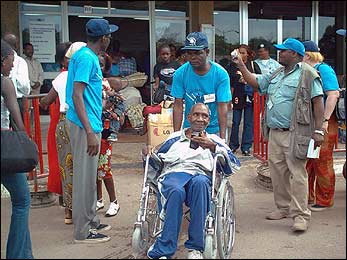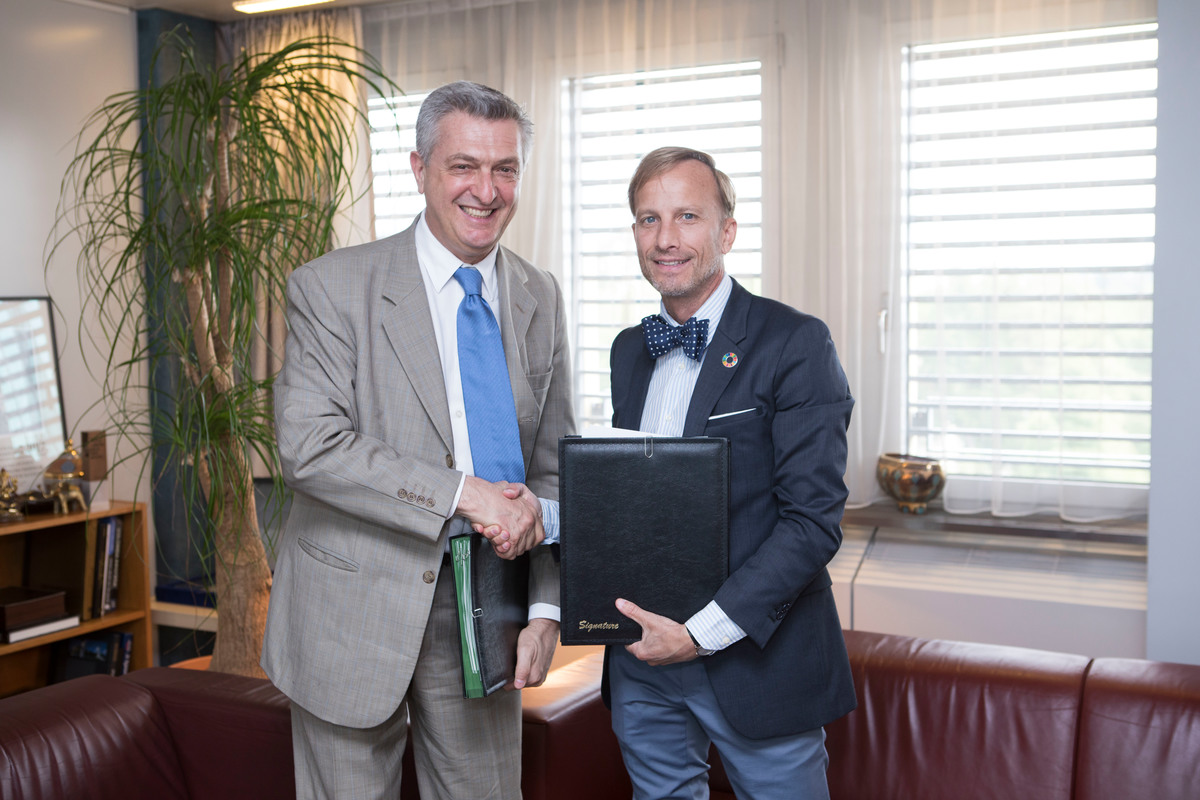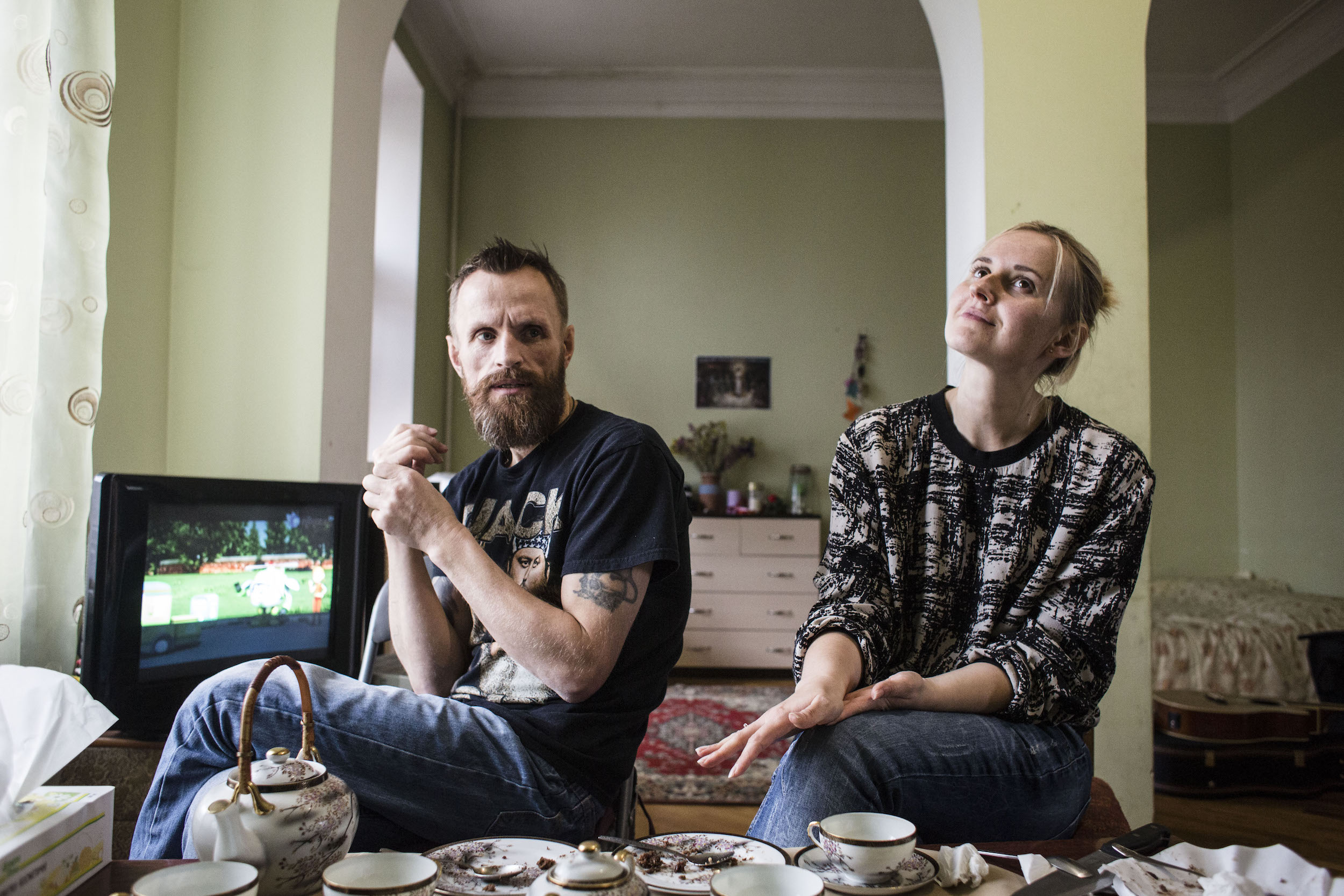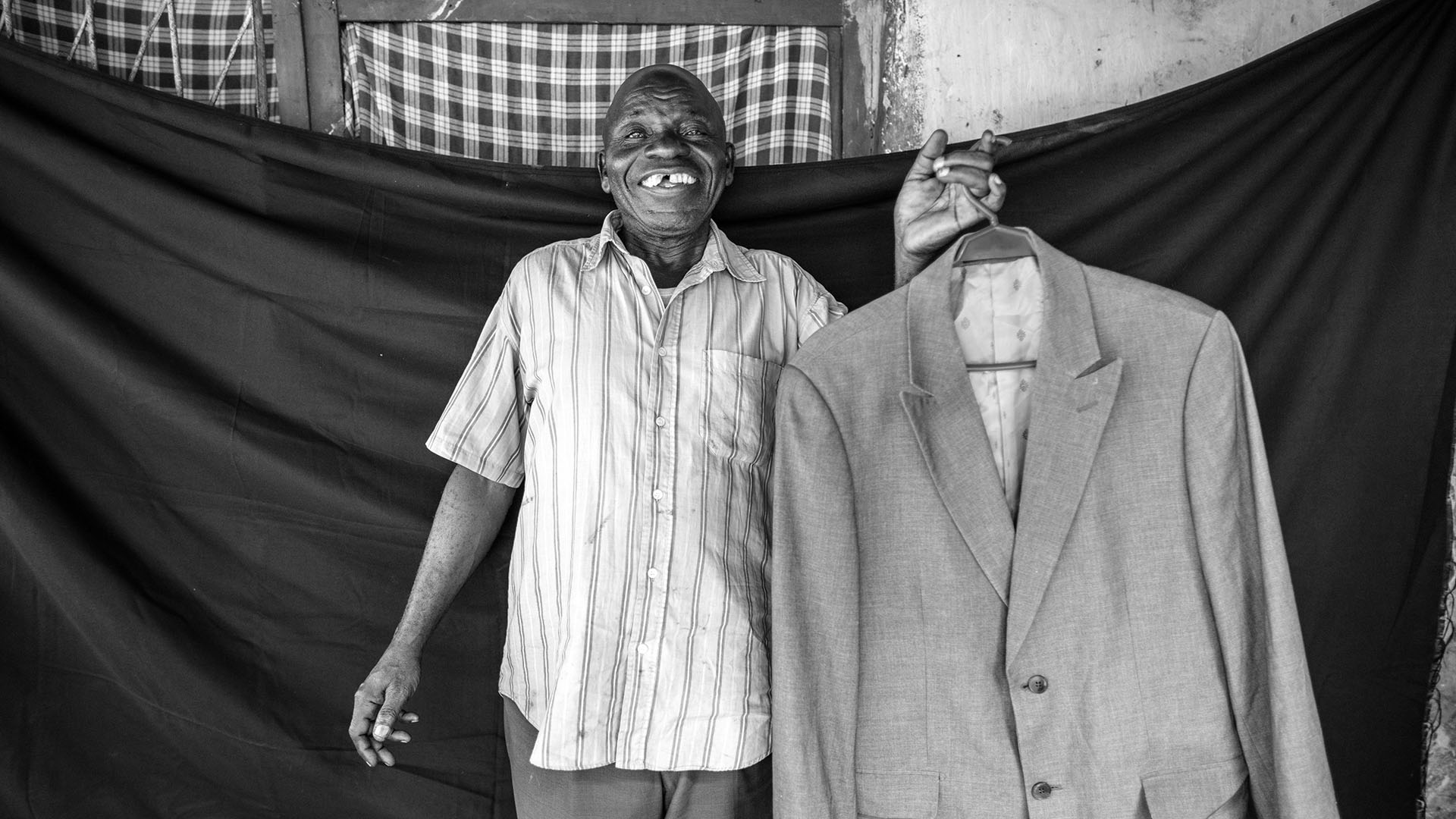"Merci mingi," Angolan returnee tells Congolese hosts
"Merci mingi," Angolan returnee tells Congolese hosts

LUANDA, Angola, Nov 2 (UNHCR) - "High spirits" doesn't begin to describe the mood at Luanda's 4 February International Airport when a group of Angolan refugees flew home from the Democratic Republic of the Congo (DRC) over the weekend.
On Sunday, a UN-chartered Boeing aircraft left the Congolese capital, Kinshasa, with 219 Angolans who had been living in exile in the DRC's main towns. This was the second airlift of urban Angolan refugees from the DRC in the last three months.
"We have got too much joy in our hearts. Now we are going back home, thank you Congo, we will never forget your hospitality. Merci mingi," a jubilant returnee in her 60s said in a mix of French and Lingala, the national vernacular. The old lady said she hoped relations between the two countries would strengthen for the two peoples, who she felt should be exchanging visits now that peace prevails.
Hours later, the plane landed amid deafening whistles, cheers and applause at the Luanda airport. The returnees were greeted by government officials and UNHCR staff, including the agency's Deputy Representative in Angola, Annette Nyekan.
Four vulnerable persons - three women and one man - were among the returning group. A 72-year-old disabled man was received on the runway in a special vehicle. He travelled the last miles of his journey home in a wheelchair.
The returnees were swiftly cleared through immigration formalities. Outside the airport, relatives swarmed the entrance to embrace their loved ones. Men and women, young and old, were in a state of disbelief on seeing their long-lost friends and family. There were long hugs of relief and joy.
The group was then bussed to a compound named Beiral, a government-sponsored home-care centre for the elderly and the disabled, in the heart of Luanda. As their relatives, friends and well-wishers waited, the returnees underwent a verification process before receiving return assistance packages comprising food like cooking oil and beans, and relief items like shelter construction materials, soap and blankets. The package was courtesy of the Angolan government, which has taken a proactive response to assisting its nationals returning to urban areas.
After the verification process, the adults in the group were assembled for information on safe sex to avoid contracting the deadly HIV/AIDS and other diseases. With undivided attention, the group was shown images of the symptoms of sexually-transmitted diseases and the methods of prevention, which includes the use of condoms that were distributed at the same time.
Children aged five to 10 were oriented to HIV/AIDS separately from the adults, through Portuguese song and dance. "Singing is usually aimed at introducing them to HIV/AIDS issues, but also to orient them to the Portuguese language so that they will eventually be able to adjust with ease," explained UNHCR's Associate Community Services Officer, Francesca Bonelli.
Later on Sunday afternoon, the returning nationals were transported to their homes in Luanda's suburbia, a coastal city of up to 4.5 million inhabitants. They were joined by their waiting relatives and friends.
This group was part of the 2,200 urban-based refugees who live in the DRC's main towns of Kinshasa and Lubumbashi. Angolans make up the bulk of the refugee population in the DRC, with about 80,000 of them.
Assisted by UNHCR, other return movements by land are ongoing in western and eastern DRC. Since assisted returns resumed in July this year, over 12,000 Angolans have returned from the DRC and other host countries, totalling 268,069 returnees since April 2002.

Some 441,000 Angolan refugees were believed to be living in neighbouring countries when the peace accords were signed in April 2002, ending three decades of protracted and divisive civil strife in Angola.
This year, the main areas of return in Angola are the provinces of Moxico and Zaire in the north, Kuando Kubango, Huambo and Cunene in the central and southern areas. Poor roads, damaged bridges and uncleared landmines have slowed down the return operation.
By Fernando Mendes and David Nthengwe in Luanda, Angola








